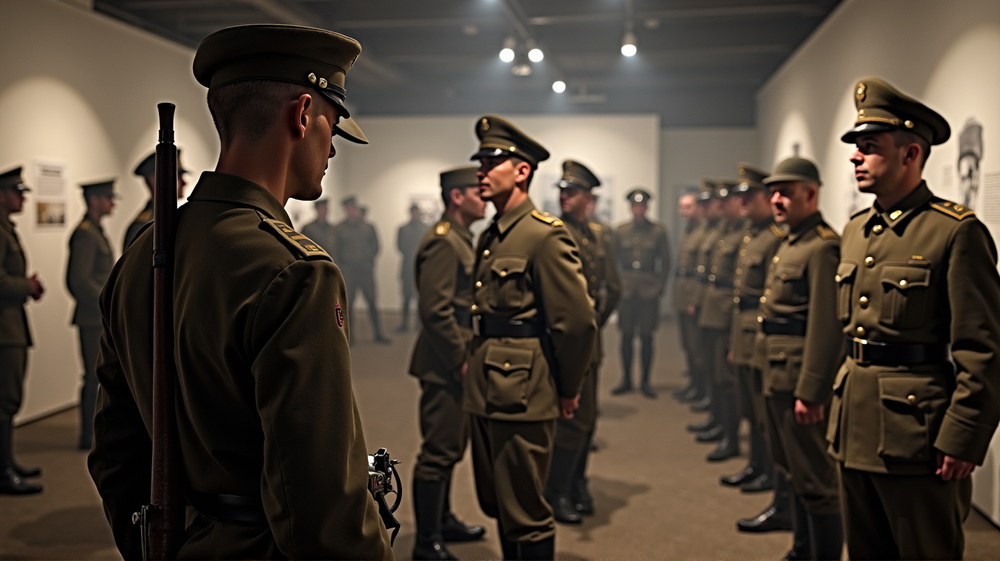A Painful Past Unveiled
The Museum of Gdańsk’s exhibition, centered on the roughly 450,000 Polish soldiers conscripted into the German army during the Second World War, has drawn both rightwing protests and support. This unique portrayal of history invites Poland to reckon with deeply significant aspects of its past. Among the exhibits are poignant family photos and oral testimonies that reveal the complexities of national identity during wartime. As stated in The Guardian, the exhibition challenges viewers to consider how individuals can be both victims and soldiers for an aggressor.
Dividing Opinions
This exhibit has not only found support but has sparked significant controversy, with rightwing groups accusing it of blurring historical lines between victims and perpetrators. Leaders like Jarosław Kaczyński have criticized the narrative the exhibition portrays, while the Museum of Gdańsk insists it’s necessary for a full understanding of the national identity. Andreas Kasperski, a donor to the exhibit, fears that the polarizing nature of the debate could have severe personal impacts.
A Voice Against Oversimplification
Critics and supporters alike are drawn into a heated national debate that evokes broader questions about historical memory and identity. The Warsaw Rising Museum, aimed at commemorating the 1944 uprising, has raised concerns on the interpretation of what constitutes “ours.” Meanwhile, historians like Cezary Obracht-Prondzyński highlight how these discussions expose the differing perceptions of identity across Poland’s varied regions, each holding its own unique historical narratives.
The Impact on National Narrative
The exhibition has further increased tensions on the nature of Polish identity, especially between regions with nuanced histories versus places with a simpler historical narrative. The discourse surrounding “Our Boys,” as this exhibit is popularly known, echoes an ongoing struggle for a comprehensive understanding of the country’s diverse history. Roman Rakowski’s letter articulates the deep moral and emotional connections tied to this history, stressing understanding over judgment.
A Call for Historical Openness
Through its exploration of a controversial chapter in Polish history, this exhibition offers an opportunity to facilitate dialogue on the complex and often painful aspects of a shared past. Professor Obracht-Prondzyński emphasizes the necessity of embracing all shades of history, warning against a single, oversimplified narrative. In a world of evolving perspectives, the Gdańsk exhibition stands as both a challenge and a reminder that understanding the intricacies of history is essential for a united future.












